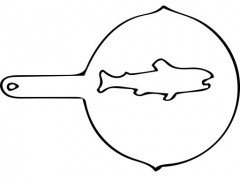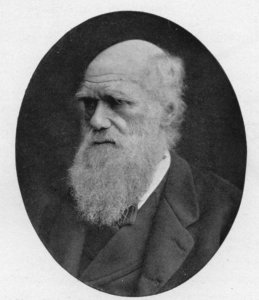Some of you may have read Garrison Keillor’s recent Washington Post Op-Ed on his search for a new religion in the aftermath of the election. If not, you can find it here. The Op-Ed is meant humorously, hence his arrival at “Confusionism” as his religion of choice, but that said, it touches on a sentiment that many have expressed post election and that I feels need to be addressed.
To Whom it May Concern,
Let it be said that I actually like Garrison Keillor. Over the years, I’ve found his humor to be a) funny and b) sensitive to the absurdity of being a Scandinavian-American. But, in his recent Op-Ed in the Washington Times, he propped up a view of the Christian church that though a) constantly recurring and b) typically American, needs to be addressed.
Just about 1500 years ago, in North Africa, Christians did bad things. Cowardly things. Under pressure from the Roman government, they did not stand up for themselves or others, instead handing over their Bibles and hoping that the government would be nice to them. Among these Christians were even bishops and priests. In righteous indignation, a man named Donatus ascended to the office of bishop and declared that confessions, baptisms, and communion administered by those traitorous priests were invalid. For his trouble, Donatus got a heresy named after him. He was opposed, you see, by another bishop from the town of Hippo, a man by the name of Augustine. Augustine’s position, was simply this: the sacraments are an act of God, not the people who perform them. In the end, Augustine won out, and Donatus got Donatism named after him.
Despite the acceptance of Augustine’s position as orthodoxy, Donatism has not gone away. In fact, I would argure that it’s the most prevalent heresy in the modern United States; it’s just changed its outward garb. Within the Catholic-sacramental system in North Africa in the 4th century, the issue was whether unholy priests could administer holy sacraments. In the Arminian-moralist system in the United States in the 21st century, the issue is whether unholy people can make up a holy church.
In the United States, we are obsessed with good people and likewise we are horrified when the people who sit in our church pews don’t act in the way that we consider upright and holy. To paraphrase Eugene Peterson, we are shocked to learn that not only are congregations full of sinners, but they generally have pastors for sinners, too. And yet, despite the fact that this should be plainly clear to us, whenever congregations show off their sinfulness, we run out looking for a new church or even a new religion.
But Augustine’s point remains the same and remains just as valid today as 1600 years ago. The preaching and the sacraments that constitute the Christian church are an act of God, and they do not require holy people to perform them. In fact, if they required holy people, there would be no church. It was this conviction that caused the framers of the Augsburg Confession to declare in Article 7 that the church is found wherever the Word is preached and the Sacraments are administered. To put it in another way, the people who come into a church on Sunday (or Saturday or Tuesday) do not constitute the church. God’s action through the preached Word and Jesus Christ’s promise to be present in the bread and the wine constitute the church.
And this is important because even when Christians seem to be behaving, even when Christians are voting for the right candidate and being nice to each other, congregations are still full of sinners and they still have sinners for pastors. Sometimes the ways in which we sin are more obvious than others, but they are never absent. Christian churches are not the place where good people get together to do good things for others. Our Lord Jesus Christ came to save the lost, and so until he comes again in glory, churches will be full of nothing but wretched sinners. Selfish sinners, angry sinners, confused sinners, nothing but sinners. For goodness sake, Peter, the rock on whom Christ would be build his church, the rock against whom the gates of Hell would not prevail, that same Peter was a bumbling fool who cut off a man’s ear with a sword, made shameful excuses for not eating with people, and denied his Lord three times. Dearly beloved, if Peter himself was a sinner and a fool, you and I have no chance.
And so, if you walk into church on Sunday, and you suddenly realize that your church is full of loathsome sinners, don’t start shopping for a new one. Remember, he was called Jesus Christ, friend of sinners, not friend of nice people. And though I probably don’t know you (and if I do know you, I can say this with absolute confidence), I know you’re in the right place. Because you, too, are a sinner. And so, you go to church, not to rub shoulders with other good people, but to be convicted of sin, to hear words of forgiveness, and to be fed with the body and blood of Jesus Christ. It’s a nonsensical deal, I know, but we’d all be lost without it.
Sincerely,
Kristofer Coffman









 When I started Trout and Cast Iron, 3 months or so ago, it was with the hope of sharing profound insights on fly-fishing, cooking, and the meaning of life. But, six posts later (and a whole month since my last post), it’s become obvious that my heart is not in it. Now, don’t get me wrong. I love to cook; I love to fly fish. But, in the end, they are both hobbies, and being hobbies, they flit in and out of my attention. More to the point, they don’t inspire me to write consistently or to write well. And so, if I’m going to make this blog worth my while and worth my readers’ while, I need to return to what constantly holds my attention. There’s a reason that I’m a pastor-in-training and hoping to do my PhD in Church History. And, while I’m not sure that the world necessarily needs another pastor blog, I am certain it needs more church history. And so, in the next week, Trout and Cast Iron will undergo a conversion. The name will stay the same, as will the design, but the content (and hopefully the frequency of content) will shift quite a bit. With any luck, the switch will help to improve the quality of my writing and to make it more useful. To those of you who visited the original incarnation of Trout and Cast Iron, thank you. And who knows, maybe I’ll keep up with the recipes, church history or not. Stay tuned, stay hyped.
When I started Trout and Cast Iron, 3 months or so ago, it was with the hope of sharing profound insights on fly-fishing, cooking, and the meaning of life. But, six posts later (and a whole month since my last post), it’s become obvious that my heart is not in it. Now, don’t get me wrong. I love to cook; I love to fly fish. But, in the end, they are both hobbies, and being hobbies, they flit in and out of my attention. More to the point, they don’t inspire me to write consistently or to write well. And so, if I’m going to make this blog worth my while and worth my readers’ while, I need to return to what constantly holds my attention. There’s a reason that I’m a pastor-in-training and hoping to do my PhD in Church History. And, while I’m not sure that the world necessarily needs another pastor blog, I am certain it needs more church history. And so, in the next week, Trout and Cast Iron will undergo a conversion. The name will stay the same, as will the design, but the content (and hopefully the frequency of content) will shift quite a bit. With any luck, the switch will help to improve the quality of my writing and to make it more useful. To those of you who visited the original incarnation of Trout and Cast Iron, thank you. And who knows, maybe I’ll keep up with the recipes, church history or not. Stay tuned, stay hyped.